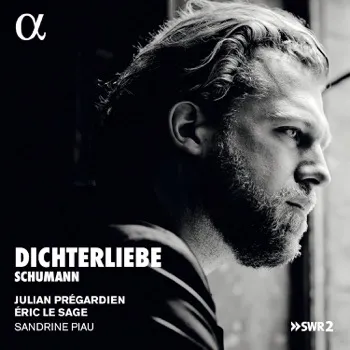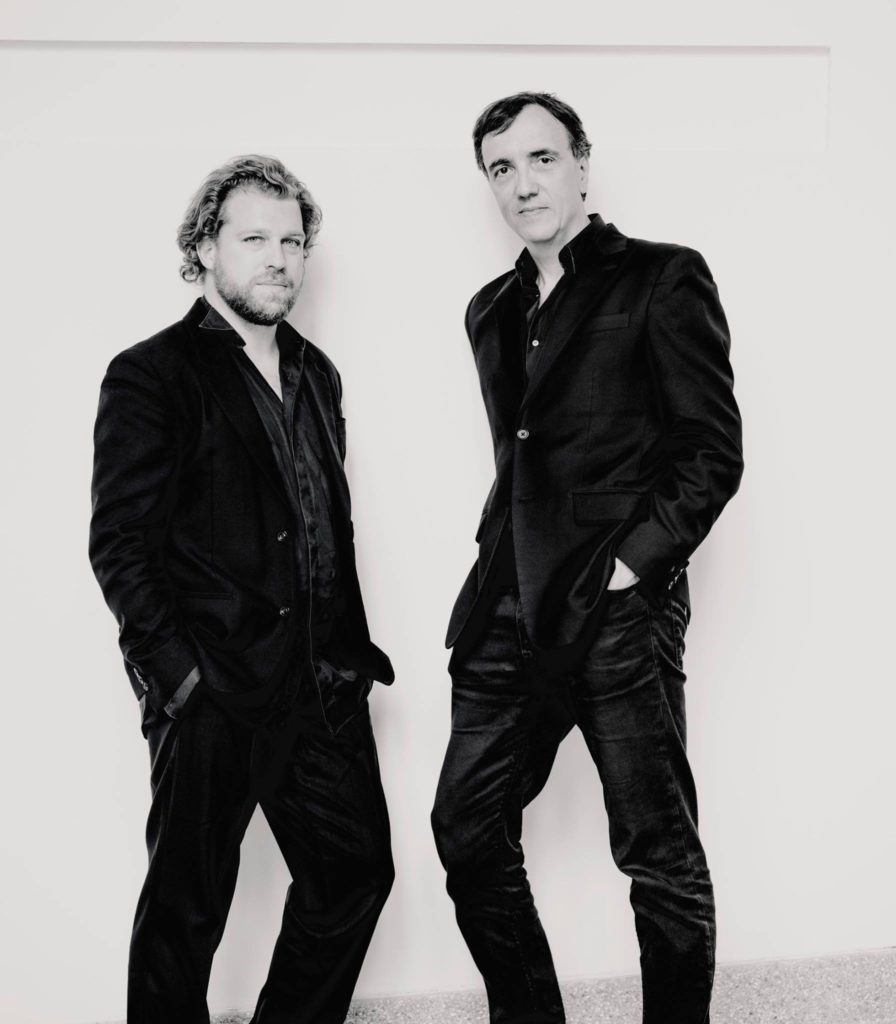The opening and closing tracks that surround the main song cycle are no less exciting than the “Dichterliebe”. We have short songs and piano works by the composer and his wife Clara, who’s 200 birthday is celebrated this year.

The album is opened with a lovely yet rarely recorded duet from “Spanisches Liederspiel” (Op.74), where Prégardien is joined by Soprano Sandrine Piau. A short Romance by Clara is then played expertly by Eric Le Sage, then more duets by husband and wife, all lovely performed, until we get to Dichterliebe. This prologue to the Op. 48 cycle works very well, preparing the listener to the world of love, anguish and hope the famous group of songs entails.
Prégardien uses the new Bärenreiter edition to the Dichterliebe, which puts into question few phrasings, markings and, most of all, the decision to omit several songs from the cycle, supposedly due to a request made by the first publisher. Happily, Prégardien and Le Sage don’t bite, and keet the masterful flow of the original 16 songs. Nonetheless, Prégardien not only incorporates some of the new editorial recommendations, but also adds a little of his own. In the first song of the set, as an example, the tenor ornaments with small grace notes on repeated phrases. They are eloquently done, though listeners will have to decide if they truly add to the experience or call attention to themselves. Small surprises can be undoubtedly delightful, though, as when Piau joins for the “Ich liebe dich!” (“I love you”) calling in “Wenn ich in deine Augen seh” (track 10).
Le Sage is no stranger to Schumann, having recorded the entire solo repertoire and all of the chamber music with piano by the composer. Unlike in these two major cycles, in this release he plays a well preserved 1856 Blüthner piano, showing again that playing mid-19th-century music on original pianos is here to stay, as shown lately by recordings such as Ronald Brautigam’s account of the two Mendelssohn Piano Concertos reviewed here. The big advantage of this instrument is the balance, which allows the pianist to play more freely without fearing to overshadow the soloist with a modern concert grand. And indeed, this balance works here remarkably well, not only because of the instrument but mainly because of the artist that sits at the keyboard. Songs such as “Im Rhein, im heiligen Strome” (track 12) or “Das ist ein Flöten und Geigen” (track 15) are supportive yet full of individual character, the piano timbre pleasant and benefitting from Le Sage’s superb pedal control.
Prégardien’s voice is sincere, pure yet sophisticated, perfectly suited for the interpretation. He is at his best in the slow, quieter songs, yet can produce a real sense of drama as in “Aus alten Märchen winkt es” (track 21). This also makes the cycle’s contrasts highly effective, and his diction is always clear, making pleasure of following the text with the nicely edited booklet. The album continues with more of Schumann’s songs and solo pieces, a prologue to a cleverly programmed album.

(image: ©️ Alpha Classics)
There are other examples of using period instruments convincingly, of which this attempt can take a proud place. Mark Padmore and Kristian Bezuidenhout are also excellent in the slower songs, yet a bit unstable in the more dramatic, faster ones. And Bezuidenhout’s accompaniment can be too cautious. It’s Prégardien senior (Christoph) that was one of the pioneers in this attitude of performing and he still sounds terrific on his “period” account with Andreas Staier.
Modern instruments versions are numerous, yet no Schumann lover should live without Fritz Wunderlich’s legendary account or Dietrich Fischer-Dieskau with Christoph Eschenbach, both on Deutsche Grammophon. Modern alternatives can include Warner Güra, Christian Gerhaher and Ian Bostridge, yet this newcomer is an excellent addition to a rich catalog, for the quality of performance as well as the engaging program, making one enjoy the entire album in one sit. Recommended.
Schumann – “Dichterliebe”
Julian Prégardien – Tenor
Sandrine Piau – Soprano
Eric Le Sage – Piano (Blüthner, 1856)
Alpha Classics, CD ALPHA457




















